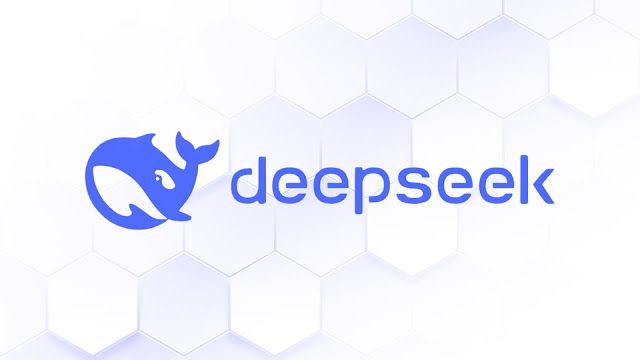Jakarta, Indonesia Sentinel — China’s artificial intelligence (AI) technology, DeepSeek R1, has sent shockwaves through the tech industry and Wall Street. On Monday, January 27, U.S. stock markets suffered sharp declines following the debut of DeepSeek, with chipmaker Nvidia losing nearly $600 billion in market value.
The breakthrough comes from DeepSeek, a startup founded just a year ago. The company has developed a revolutionary AI model that investor Marc Andreessen has dubbed a “Sputnik moment for AI.”
Releeased in January 20, DeepSeek R1 has posed a direct challenge to the dominance of U.S. tech giants in the AI sector. Remarkably, R1 rivals the capabilities of well-known AI systems like OpenAI’s GPT-4, Meta’s Llama, and Google’s Gemini — but at a fraction of the cost.
According to CNN Indonesia, DeepSeek claims to have spent only $5.6 million to support its foundational AI model, a stark contrast to the hundreds of millions, even billions, of dollars U.S. companies invest in their AI developments.
Even more surprising is that DeepSeek’s success comes despite years of U.S. efforts to restrict China’s access to high-powered AI chips, citing national security concerns. DeepSeek’s development proves that low-cost AI models can be built using relatively low-powered chips.
The Visionary Behind DeepSeek
DeepSeek was founded in late 2023 by Chinese hedge fund manager Liang Wenfeng, now often referred to as China’s equivalent of Sam Altman. Liang is a prominent advocate for AI technology and a key investor in cutting-edge research. His hedge fund, High-Flyer, focuses on advancing AI innovation.
Like other AI startups, such as Anthropic and Perplexity, DeepSeek has introduced several competitive AI models over the past year, gaining industry attention. The company’s V3 model helped elevate its profile, despite concerns over its adherence to China’s strict content regulations on sensitive political topics.
However, DeepSeek R1, which was unveiled at the end of last year and officially launched last week, has garnered unprecedented attention. Its low operational costs and open-source nature make it a potential game-changer in the AI landscape.
What is DeepSeek
According to BBC, DeepSeek is a free AI-powered chatbot that closely mirrors the functionality and design of OpenAI’s ChatGPT. Like its rivals, it can handle a variety of tasks, though debates continue about its performance relative to other models.
What sets DeepSeek apart is its underlying AI model, R1, which boasts 670 billion parameters—making it the largest open-source large language model to date, according to Anil Ananthaswamy, author of Why Machines Learn: The Elegant Math Behind Modern AI.
R1 reportedly rivals OpenAI’s O1 model, released late last year, in key areas such as mathematics, coding, and logical reasoning.
Unlike traditional large language models, R1 is a reasoning model, designed to generate responses incrementally. This approach mimics human problem-solving and idea-processing methods. By using less memory than its competitors, R1 reduces the cost of completing tasks, offering a significant advantage in the resource-intensive AI landscape.
DeepSeek’s open-source model also allows other companies to test and refine its technology, which has fueled its rapid adoption. As a result, the DeepSeek app surged to the top of app store rankings, surpassing OpenAI’s ChatGPT. By Monday, the app had been downloaded nearly two million times.
A Threat to U.S. AI Dominance
DeepSeek’s emergence poses a significant threat to U.S. AI companies, given the technology’s high energy demands and development costs.
To support AI advancements, leading U.S. tech firms have made substantial investments in infrastructure. For example, some companies have acquired nuclear power plants to meet the electricity demands of their AI models.
Read Also:
AI Consumed Almost All Human Knowledge, Elon Musk: We’re Running Out of Data
Meta recently announced plans to spend more than $65 billion this year on AI development. Meanwhile, OpenAI CEO Sam Altman has said the industry will require trillions of dollars of investment to support chip production and power data centers.
DeepSeek’s low-cost, open-source model could disrupt this high-cost paradigm, potentially reshaping the future of artificial intelligence.
(Raidi/Agung)

























